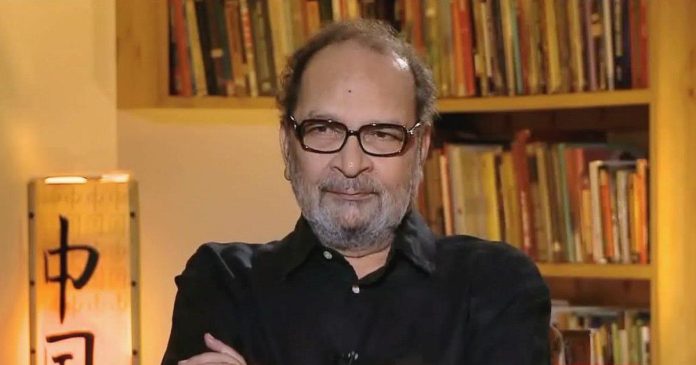– Abdul Bari Masoud
New Delhi: Veteran journalist Saeed Naqvi has strongly criticised both Western and Indian mainstream media. He dubbed them as “lapdog or Godi media,” accusing them of serving as government propaganda tools, especially after the Cold War.
Naqvi was speaking at a public meeting at the Press Club of India on “Throttling Press Freedom and the Attack on Freedom of Expression to Enslave Society,” organized by Janhastakshep.
Drawing on his vast journalistic experience, Naqvi traced the evolution of global media. He connected the rise of the “Global Media” with its Indian counterpart, calling it “Godi Media.”
Naqvi explained that the disintegration of the Soviet Union shifted global politics, allowing the U.S. and NATO allies to dominate in the 21st century. “The market’s victory was declared, and to ensure the American century, an enemy had to be created,” he said. This enemy became the Muslim world, leading to the “Global War on Terror.”
He pointed out that the Iraq War in 2003 was based on false intelligence about weapons of mass destruction in Saddam Hussein’s Iraq. “We saw the birth of global media from Baghdad,” he recalled, referring to the rise of embedded journalism, where reporters reported alongside military units.
Naqvi quoted British MP Arthur Ponsonby’s “Falsehood in War-Time,” saying, “Truth is the first casualty of war.”
He criticised the media’s transformation during this period, emphasizing that it no longer stood for truth but became a state propaganda tool.
Naqvi noted that this shift was mirrored in Indian media, which grew by taking cues from Western media—not in pursuit of truth but as mouthpieces of power. He warned that Islamophobia, once a tool in the war on terror, has now become a key feature in global and Indian media narratives.
On the future of journalism, Naqvi acknowledged the rise of independent digital media platforms. “While mainstream media has failed, a new generation is creating space for honest journalism,” he concluded.
Academic Prof. Rakesh Batabyal also critiqued global and Indian media for becoming state propaganda tools post-Cold War. Batabyal, a professor at Jawaharlal Nehru University, used Hannah Arendt’s theory of “Banality of Evil” to explain how authoritarian regimes create alternate truths by simplifying problems and linking them to imagined enemies.
He cited the ongoing Israeli attacks on Gaza, hidden under the guise of ‘humanitarian aid,’ as an example of this manipulation.
Prof. Batabyal stated, “For fascist regimes, the media exists only to legitimise their version of truth.” He expressed concern that an entire generation is growing up without the tools to critically examine information or question dominant narratives.
Both speakers emphasized the urgent need to reclaim media as a public good and warned of the long-term consequences of a society immersed in propaganda.




